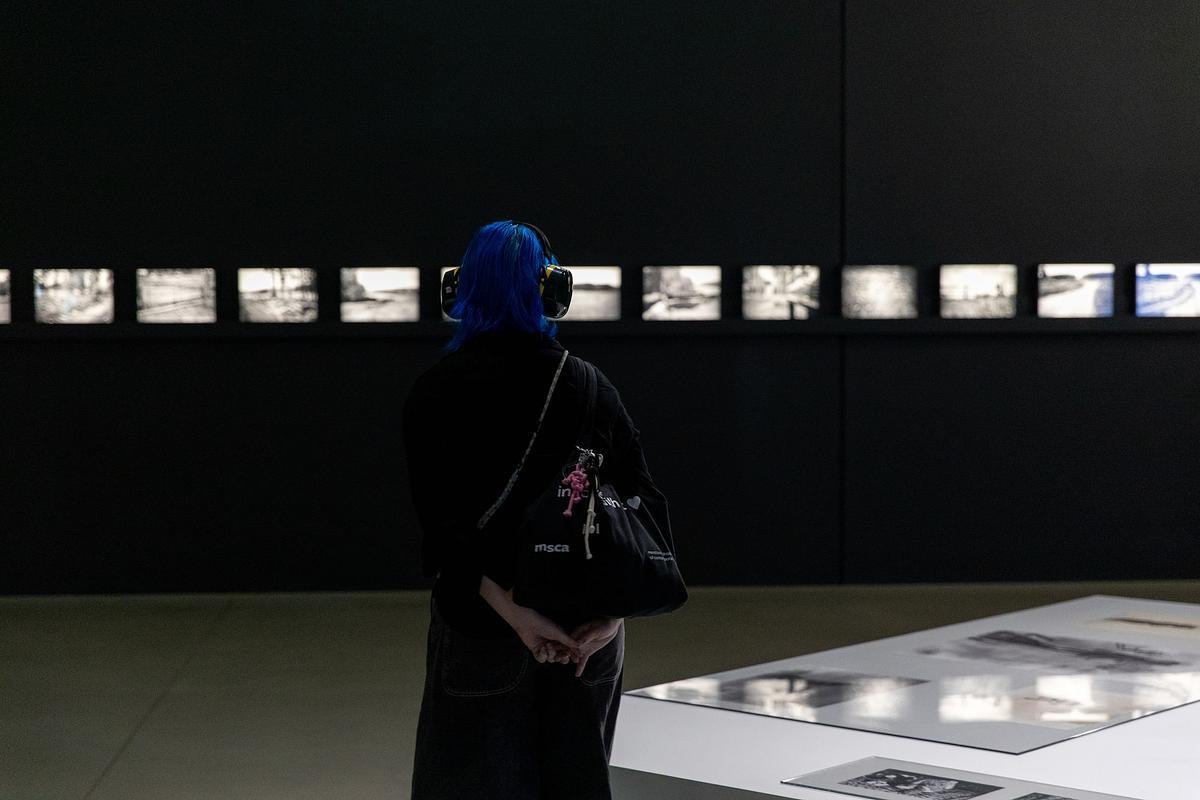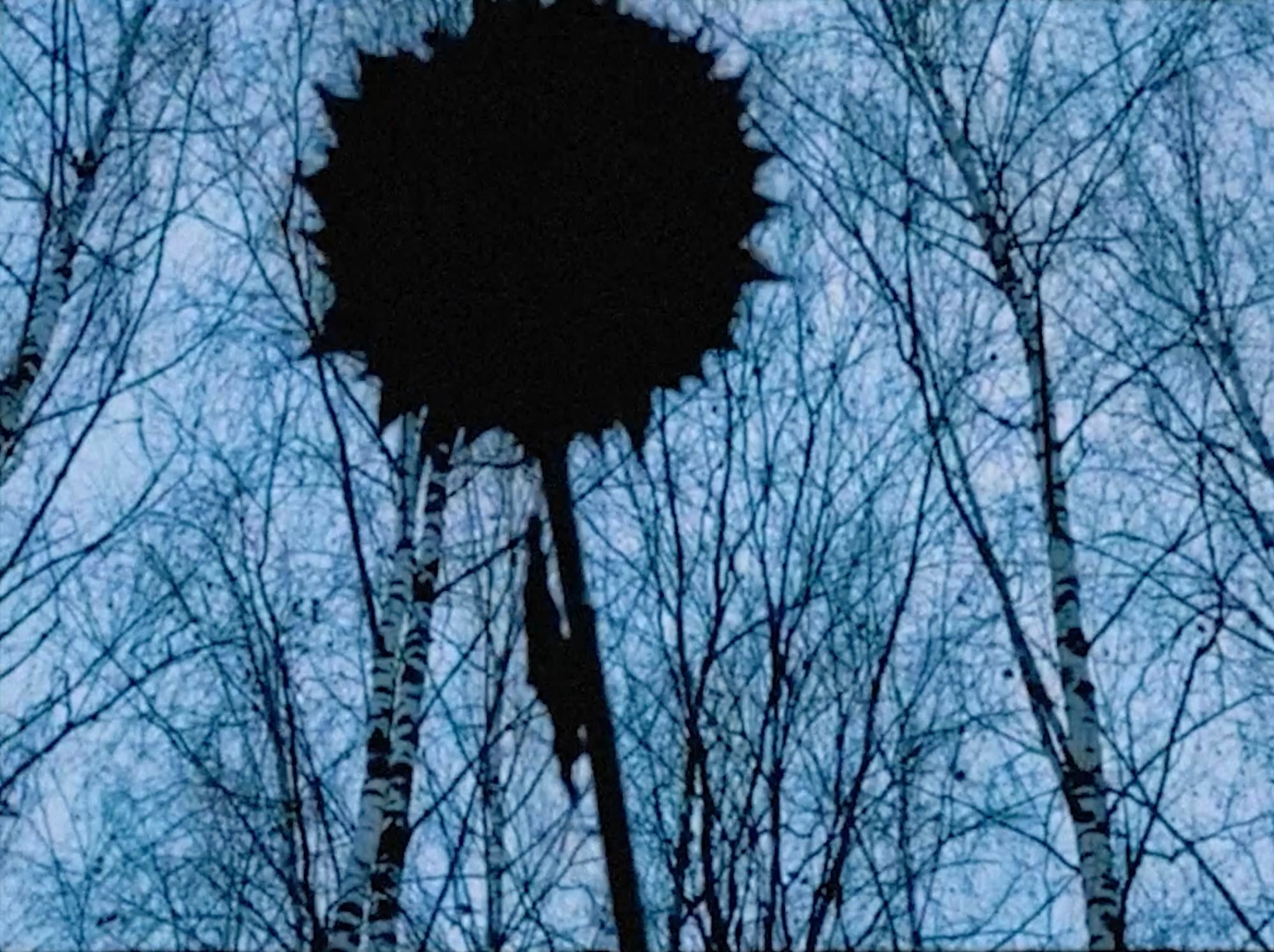
The artist’s solo exhibition becomes a journey through memories, images, and illuminations.
The artist’s solo exhibition becomes a journey through memories, images, and illuminations.
Olga Chernysheva’s Dream Street exhibition is partly inspired by Anton Chekhov’s The Steppe. This statement, at first glance, might puzzle viewers, given none of the exhibited works directly illustrate Chekhov’s novella. Yet, all the same, motifs present in Chekhov’s text can be traced through the conception, content, and construction of the project. For this reason, although Dream Street is retrospective in as far as it brings together works by Olga Chernysheva from various years, the logic of their selection and exposition seeks not so much to tell an artistic history as to stage Chernysheva’s symbolic world in the space of the House of Culture.
Olga Chernysheva. Still from A Little Bit. Prelude, 2025
The Dream Street project is about dreams as both nocturnal visions and aspirations, about the wonderment before what seems familiar on the other side of sleep. Prospero, the character from Shakespeare’s The Tempest, says: ‘We are such stuff as dreams are made on, and our little life is rounded with a sleep.’ In an artistic space, there are different rules: here, form becomes content, and rhythms and tonalities are more significant than facts. The journey along Dream Street does not occur in time. It is more akin to immersion in a suspended moment.
— Olga Chernysheva, artist
Just as Chekhov’s novella unfolds across the vast expanse of the steppe, Dream Street eschews barriers and partitions—artistic works are not just hung on the walls but float in the air and lie horizontally, structuring the scenography of Chernysheva’s universe. And although formally, the exhibition is divided into ten parts, leitmotifs reach beyond the bounds of their formal sections and flickeringly illuminate Dream Street in its entirety. After all, the distinct authorial essence that runs through Olga Chernysheva’s oeuvre cannot be artificially divided into segments.
The entire narrative of Chekhov’s Steppe is told through the prism of an individual consciousness—the consciousness of a child. In a child’s consciousness, a still infirm rationality is intertwined with the imaginary, and abstraction is not yet distinguished from the felt—that is, the world is still perceived in a natural, living organicity. This is a world in which the inanimate becomes animate and the past comes alive, and in which all things exist in relentless pursuit of the primordial.
Chernysheva sees something fundamentally true in this way of perceiving the world. However, adopting such a mode of perception, and all the more sustaining it, is no simple task, given it depends in part on unpremeditated moments of happy coincidence or unexpected illumination. Each of Olga Chernysheva’s works is an attempt to fix such fleeting moments.
Fittingly, no single viewing path is proposed through the exhibition at
All photos: Daniel Annenkov
Artist
Olga Chernysheva
Curators
Viktor Misiano, Elena Yaichnikova
Architecture
Sasha Kim
Lighting
Ksenia Kosaya
Producers
Veronika Luchnikova, Angelina Vorona
Technical team
Andrei Belov, Artem Kanifatov, Ksenia Kosaya, Artem Marenkov
Art logistics and registration
Daria Krivtsova, Polina Kuznetsova, Daria Pankevich
Editors
Grigory Cheredov, Olga Stebleva
Accessibility and inclusion team
Aleksandra Kharchenko, Victoria Kuzmina, Varya Merenkova, Vera Zamyslova
Graphic design
Olesya Voronina
Media specialist
Anya Kolpakova
English texts
Charlotte Neve
The exhibition was organised in collaboration with
Gazprombank Corporate Art Collection
Iragui Gallery
New Collection Foundation for Supporting Cultural Projects
Private collection of Ekaterina Lapshina
Private collection of Elena Talyanskaya and Georgy Smirnov
Volker Diehl Gallery, Berlin
Special thanks to
Boris Prudnikov, Anna Ivanova-Vutsinya (Red Fox ceramics studio), Rimma Tronza (Photolab), The Vaults Centre for Artistic Production staff: Andrey Shagin and Liudmila Frost
Media partners of the exhibition




